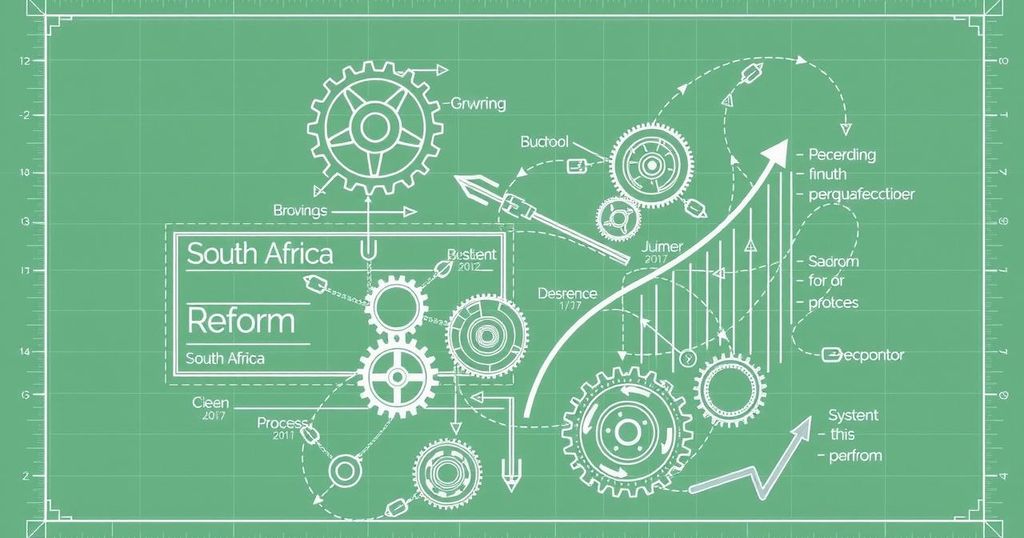Redefining Economic Growth: South Africa’s Budget Blueprint for Reform
South Africa’s national budget aims to address historical injustices and promote equitable growth through substantial investments in key sectors. Despite challenges like high unemployment and a narrow tax base, strategic investments in human capital and industrialization are essential for sustainable economic development.
A national budget serves as a transformative tool for South Africa, aiming to rectify historical injustices, generate employment opportunities, and foster a more equitable society. While the current budget faces delays and disagreements over funding methods, its potential impact remains significant. An effective budget addresses key areas such as healthcare, housing, education, and infrastructure, ensuring a balance between industry-specific incentives and broad-based support.
Since the end of apartheid, South Africa has focused on healing its divided society through substantial investments in housing, healthcare, and education. The National Development Plan 2030 proposes inclusive funding, allocating R259 billion for education in the 2023/24 budget for infrastructure upgrades, teacher training, and early childhood development. However, approximately 63% of South Africans remain below the upper-middle-income poverty line, emphasizing the need for a renewed emphasis on unlocking human potential for more sustainable progression.
Economic mobility is essential for national development, as reflected in substantial investments in education and job creation within the national budget. Programs such as the National Student Financial Aid Scheme and the Youth Employment Service aim to assist youth in acquiring skills to escape poverty. Nonetheless, low GDP growth hampers job creation, with increases in GDP resulting in too few jobs to accommodate the growing workforce.
Investments in human capital are vital for South Africa, particularly given the substantial youth unemployment rate and a high Gini coefficient of 63. Strategic investment was evidenced in successful international examples like Singapore and Germany, highlighting the importance of equipping citizens with relevant skills to enhance global competitiveness.
To assert a meaningful presence in the global economy, South Africa must focus on strategic investments in sectors such as manufacturing, technology, and renewable energy. While South Africa’s economy, with a GDP of US$405 billion, lags behind larger economies like China and India, there is a roadmap to progress through targeted investments and structural reforms that can revitalize underutilized industrial zones.
Current projections by the World Bank suggest modest growth for South Africa’s GDP, presently estimated at 1.8%, raising concerns about the lengthy journey to high-income status. While social grants have provided necessary support for millions, they cannot fuel sustainable economic growth. The recent budget stalemate regarding the potential VAT increase highlights the drawbacks of a consumptive budgeting approach.
The reliance on a narrow tax base, where merely 100 companies account for 90% of tax revenue, underscores the urgency for South Africa to diversify revenue sources. The National Treasury must consider widening fiscal financing through increased tariffs, fees, and service charges to enhance revenue generation, potentially raising up to R1 trillion annually within five years.
Going forward, South Africa’s budget should transcend mere fiscal balances and become a strategic guide for national renewal. Transitioning from a focus on consumptive social spending to targeted investments in innovation and industrialization represents a pivotal move towards a prosperous future.
In summary, South Africa’s national budget serves as a critical vehicle for societal transformation by addressing historical disparities and fostering economic growth. The emphasis on education, human capital investment, and strategic sectoral development is essential for achieving sustainable progress. Additionally, diversifying revenue sources and reallocating budget priorities are crucial for establishing long-term economic stability and competitiveness in the global arena.
Original Source: www.zawya.com




Post Comment